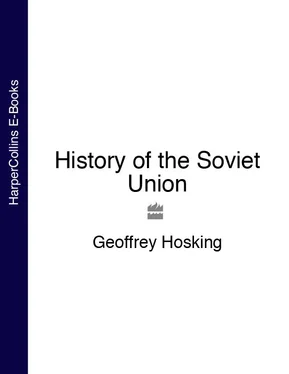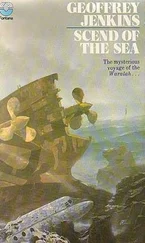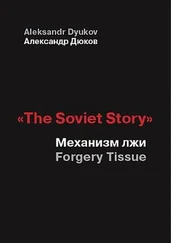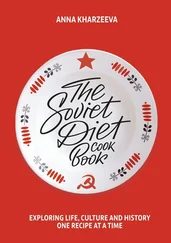The second period when it seemed as if the Reds might be defeated was in the autumn of 1919. The Volunteer Army, having finally become a formidable force under General Denikin, took advantage of a Cossack rising against the Reds to conquer most of the south and the Ukraine, and by October had advanced as far as Chernigov and Orel, the latter less than two hundred miles from Moscow. At the same time, General Yudenich, using the Baltic region as a base, advanced on Petrograd, and penetrated as far as the suburbs of the city by October. In both cases the Red Army proved equal to the challenge, and was able to drive the attackers back.
The Whites were, then, ultimately unsuccessful. This was partly because of political disunity, as has been suggested: at the very least they failed to act as a focus for all the various anti-Bolshevik forces. They failed even to attract a mass following among the population, though both the workers and the peasants were becoming very disillusioned with Bolshevik rule as it had turned out in practice. The Whites’ political programmes were vague and inadequate: they did nothing to reassure the peasants that the land they had won in 1917 would not be taken away from them again in the event of a White victory. They failed to offer the workers a secure status for the trade unions, factory committees and other new representative organizations of 1917. In fact their only consistent political message was ‘Russia one and indivisible’–which of course alienated the non-Russian nationalities who might otherwise have been inclined to support the Whites as Bolshevik nationality policy began to reveal itself in practice.
All this might not have mattered so much if the Whites had demonstrated by their behaviour towards the population that they were fairer and more responsible rulers than the Bolsheviks. But this was not the case. Dependent for quartering and food supplies on the regions where they were fighting, they requisitioned and pillaged less systematically, but scarcely less ruthlessly, than the Bolsheviks. They never glorified in terror as a system of rule, but they often applied it nevertheless. Moreover, the White generals continually lost control of their subordinates, so that, even if Kolchak and Denikin were themselves morally blameless, they proved powerless to prevent their armies committing excesses. As Kolchak wrote to his wife: ‘Many of the Whites are no better than the Bolsheviks. They have no conscience, no sense of honour or duty, only a cynical spirit of competition and money-grabbing.’ That was no recipe for winning a civil war, especially against opponents who were such masters of political propaganda.
The creation of the Red Army was one of the clearest examples of the way in which the Communists reversed the slogans of the revolution. The Bolsheviks had come to power by undermining the old army. Insofar as they had thought about what might replace it, they had envisaged an armed people’s militia, on the model of the Red Guards. This was what made the Left Communists’ programme for a ‘revolutionary war’ against the Germans so logical and appealing. Even for some time after Lenin had secured the defeat of that idea at Brest-Litovsk, the regime left itself with only a small new army, the so-called Workers’ and Peasants’ Red Army, structured on the principles the Bolsheviks had proclaimed in 1917: there were no insignia or ranks, and each unit was run by an elected committee, one of whose jobs was to choose officers. Military discipline was recognized only in active combat, and even there unit commanders had to operate for the time being without the sanction of the death penalty.
This structure, however, did not last for long. During the confusion of the Brest-Litovsk negotiations, the Germans actually resumed their advance for a time. This was a cruel reminder of just how helpless and quixotic the new Russian army was. Trotsky decided to scrap it, and to rebuild on more traditional principles. He set up a Supreme Military Council, under the tsarist General Bonch-Bruevich, to organize the task of creating a new army. A network of military commissariats was distributed over Red-controlled territory to raise recruits, at first voluntarily, then, after the Czech revolt, by compulsory conscription. Most of the Red Guard and militia units were disbanded as unreliable, with a few party members drawn from each to constitute the nucleus of newly formed and conventionally constituted regiments. But who was to command the new units? The party did not possess anywhere near enough men with the necessary degree of military training and experience to lead troops in modern warfare. With Lenin’s support, Trotsky turned to officers of the old Imperial Army, at least those who had not fled to serve with the Whites: their insignia and ranks were not restored, but otherwise they were given the disciplinary powers to which they had been accustomed, up to and including the death penalty. There was no longer any nonsense about ‘soldiers’ committees’: they were simply abolished and replaced by ‘political commissars’. These were party-approved appointees, placed at the side of the officers–some of whom, at least initially, were reluctant to serve the Reds–to ensure their loyalty, pass on political instructions and raise the level of political consciousness among the conscripts. The commissar was explicitly not subordinated to the officer but was his equal, with the right to execute him if he committed treason towards the Red Army.
Trotsky’s methods aroused much criticism, both in and outside the party. In VTsIK the Menshevik, Dan, exclaimed, ‘Thus the Napoleons make their appearance’, while inside the party a so-called Military Opposition called for a return to the militia principle and the dismissal of old-regime officers. However that might be, Trotsky did create an effective fighting organization under ultimate party control. Considering how hastily it was put together, and the magnitude of the tasks it faced, the Red Army fought remarkably well, and it can probably be asserted that morale inside it was better than in any other section of the Russian population. Its troops were, of course, better fed than almost anyone else at the time, and service in the Red Army was an excellent means of advancing oneself in the new society. Hundreds of thousands of workers and peasants in the Red Army joined the party, and some of them later advanced through it to positions of power and responsibility in the new society. Trotsky, in fact, did his best to ensure that Red soldiers were given special training and promoted to command positions as soon as possible. By the end of the civil war, these new promotees constituted two-thirds of the officer corps: among them were some destined to become household names during the Second World War. All this had a profound effect upon the social structure of the party (see below, pages 86–7).
The revolutionary regime’s other main instrument was the Cheka. As we have seen, this was established in such a way that it was not subject to the supervision either of the party or of the soviets. It arose outside even the rough and ready legal norms which the new regime set before itself. It might be said, indeed, that the Cheka directly embodied Lenin’s ambivalence about democracy and authoritarianism. ‘The workers and soldiers’, he exhorted the presidium of the Petrograd Soviet in January 1918, ‘must realize that no one will help them except themselves. Malpractices are blatant, profiteering is monstrous, but what have the masses of soldiers and peasants done to combat this? Unless the masses are aroused to spontaneous action, we won’t get anywhere. … Until we apply terror to speculators–shooting on the spot–we won’t get anywhere.’
From the beginning it was the Cheka, as the ‘avenging sword’ of the proletariat, which in fact carried out these functions, though Lenin talked of ‘spontaneous mass action’. With Lenin’s at least implicit encouragement, it soon overstepped the restrictions that had initially been placed on it: it proceeded from mere investigation of counterrevolutionary crime to the arrest of suspects, and from there to staging trials, deciding sentences and even carrying them out. The first person shot by the Cheka was a certain exotically named Prince Eboli, an extortionist who particularly offended the Cheka head, Felix Dzerzhinsky because he claimed to be a member of his organization. ‘Thus’, said Dzerzhinsky, ‘does the Cheka keep its name clean.’ The Cheka also received the right to create its own armed formations to carry out its growing duties.
Читать дальше












